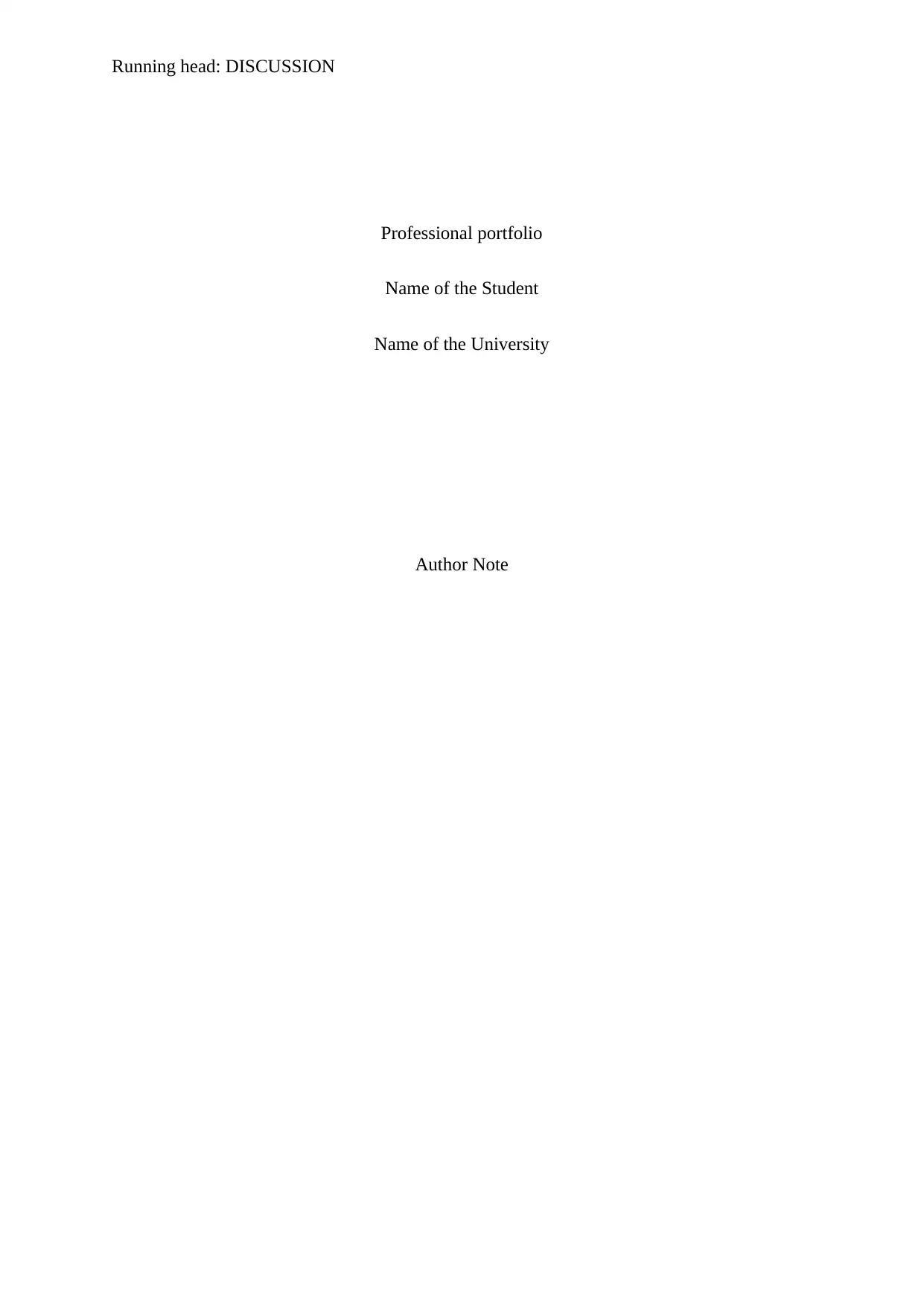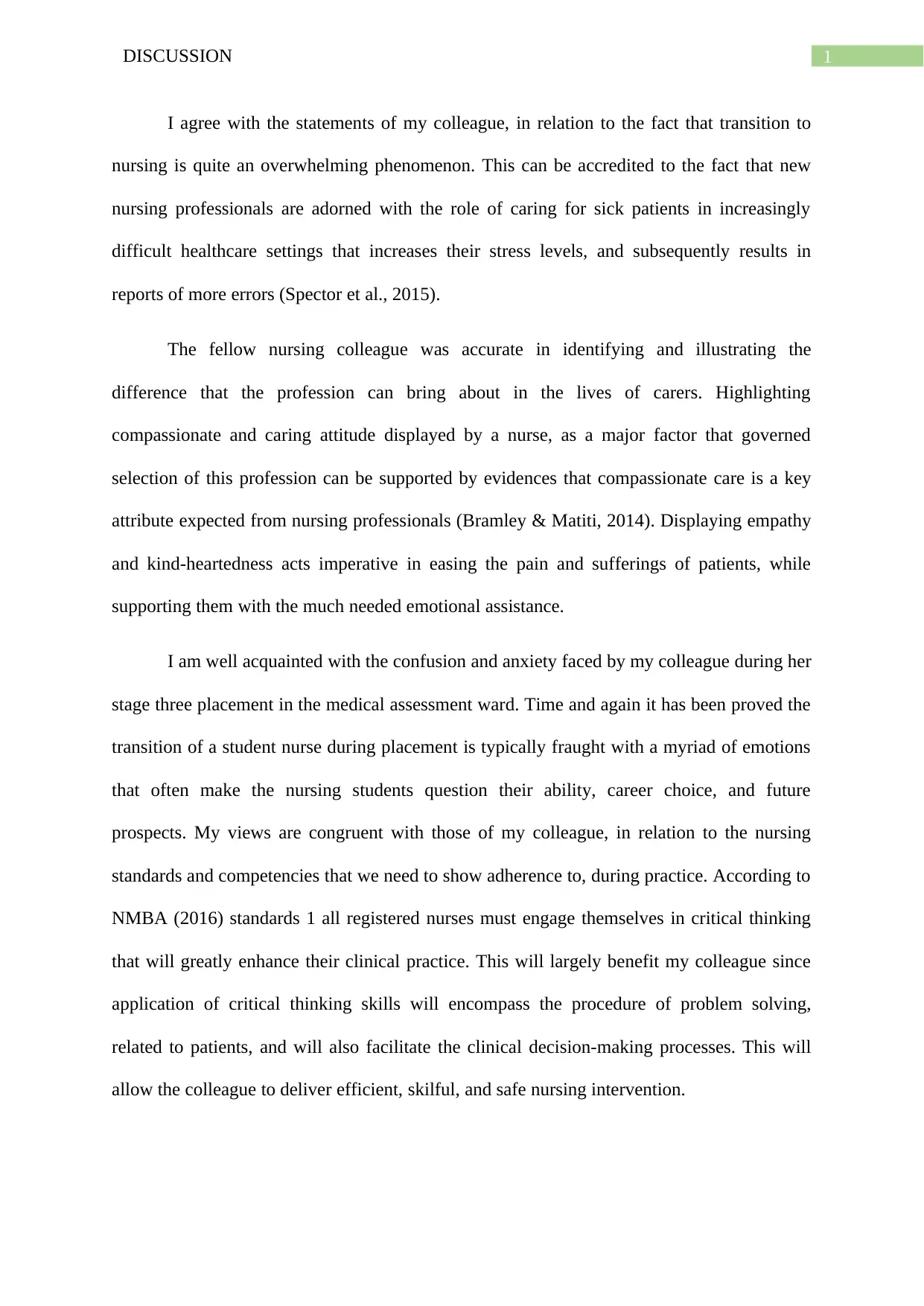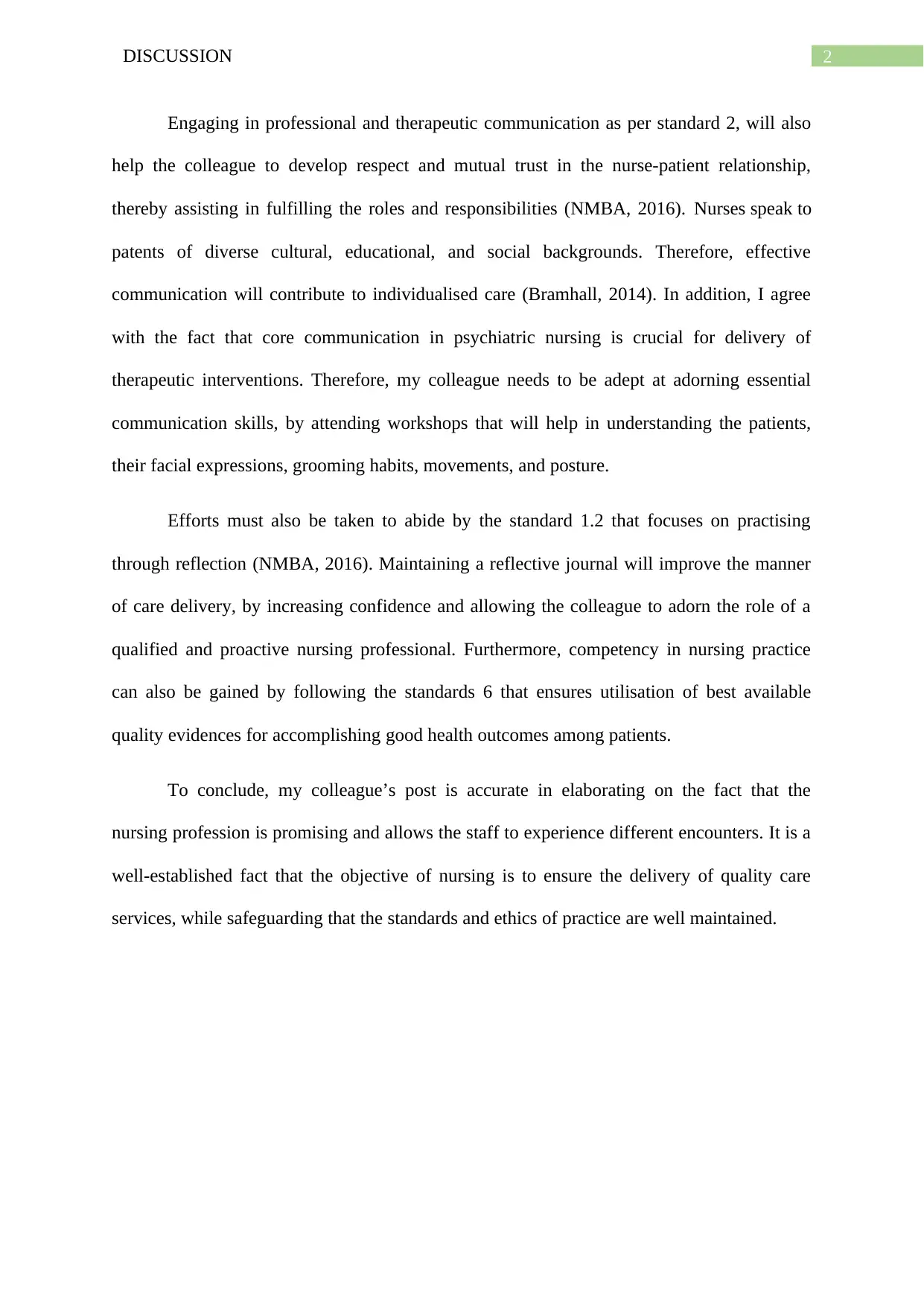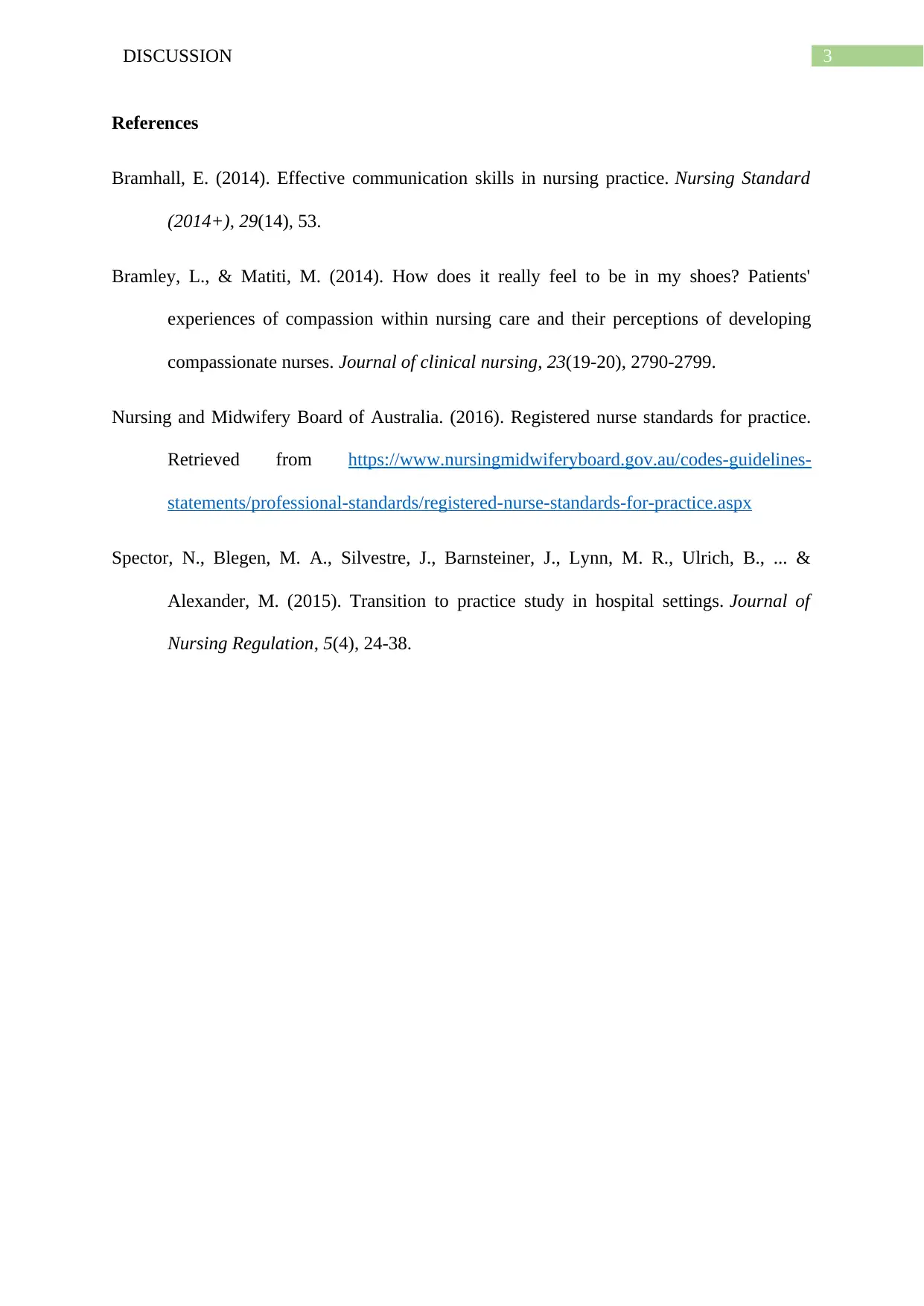University Nursing Discussion Post: Professional Portfolio Analysis
VerifiedAdded on 2023/04/06
|4
|661
|269
Discussion Board Post
AI Summary
This discussion post analyzes a nursing student's reflection on the challenges of transitioning to nursing practice and the importance of adhering to nursing standards. The author agrees with their colleague's perspective on the overwhelming nature of the transition, emphasizing the increased stress and potential for errors in new nurses. The post highlights the significance of compassionate care, effective communication, critical thinking, and reflective practice, referencing the NMBA standards. It critiques the colleague's post, providing constructive advice and guidance on how the colleague can meet the goals and suggesting activities like maintaining a reflective journal and attending communication workshops. The post also emphasizes the importance of utilizing evidence-based practices to achieve positive patient outcomes and maintain nursing ethics.
1 out of 4











![[object Object]](/_next/static/media/star-bottom.7253800d.svg)